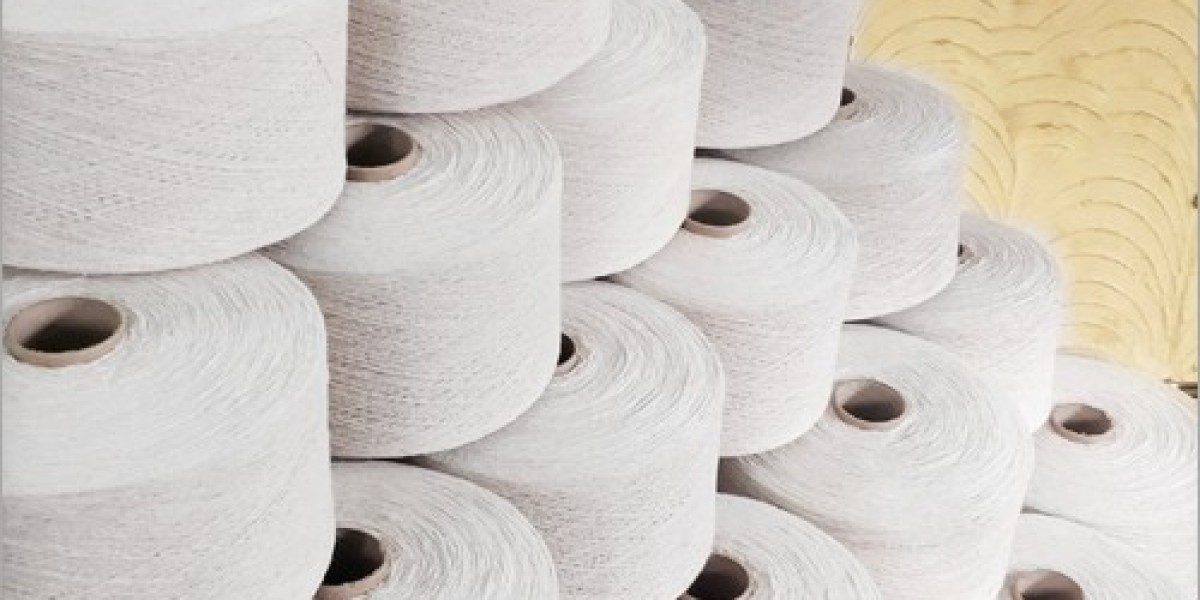In 2025, sustainability is not just a trend — it’s a business imperative. With growing pressure from consumers, regulators, and global climate agreements, fashion brands are rethinking every aspect of their supply chains. One of the most impactful changes comes from switching to recycled fiber yarn, a material solution that significantly reduces environmental impact.
At Rg Fibers, we recently partnered with an international fashion brand aiming to reduce its carbon footprint. Through strategic collaboration and consistent supply of our GRS-certified recycled fiber yarn, the brand reported a 40% reduction in carbon emissions associated with its production process.
Here’s how we made that possible.
The Client: A Fashion Brand with a Sustainability Mission
Our client is a mid-sized European fashion label known for its modern basics and eco-conscious values. In 2024, the brand committed to transitioning at least 70% of its raw material sourcing to sustainable alternatives — and they turned to us, one of the leading recycled fiber yarn suppliers, to make that goal a reality.
The Challenge: High Emissions from Virgin Yarn
The brand’s previous collections relied heavily on virgin cotton and polyester yarns, which involve:
Water-intensive farming for cotton
Petroleum-based production for polyester
Long-distance shipping from multiple suppliers
Dyeing and chemical finishing processes with high energy use
After an internal sustainability audit, the brand found that nearly 65% of its carbon footprint came from the materials stage. Clearly, the yarn had to change — and fast.
The Solution: Replacing Virgin Yarn with Recycled Fiber Yarn
Our team introduced the client to our range of recycled fiber yarns, which are spun from post-industrial textile waste and recycled PET (polyethylene terephthalate) bottles. These yarns are:
GRS-certified
Mechanically recycled, using no harmful chemicals
Available in pre-dyed blends, eliminating the need for water-heavy dyeing
Made in India in eco-efficient mills with renewable energy integration
By partnering with us, one of the most reliable recycled fiber yarn manufacturers, the brand could access a consistent, quality-assured, and traceable yarn supply — without compromising on the softness, durability, or visual appeal of their garments.
The Process: From Concept to Collection
1. Material Assessment
We began by understanding the brand’s fiber requirements — color shades, GSM, blend ratios, and end-use goals. Based on this, we proposed a cotton-polyester blended recycled fiber yarn suitable for knitwear and casualwear.
2. Sampling & Lab Testing
Prototypes were developed, and yarns underwent rigorous lab testing for tensile strength, shrinkage, pilling, and colorfastness. The results met and exceeded expectations, giving the client confidence to move forward.
3. Bulk Supply & Timely Delivery
We scaled production and delivered bulk quantities within the required lead time. Our reputation as punctual recycled fiber yarn suppliers played a critical role in keeping their launch on track.
4. Certifications & Transparency
We provided full documentation, including:
GRS certification
Batch-wise test reports
Waste traceability papers
This transparency made it easy for the brand to promote its sustainable switch with credibility.
The Results: A 40% Reduction in Carbon Emissions
The switch to recycled fiber yarn yielded significant environmental savings across the production chain:
| Impact Area | Before (Virgin Yarn) | After (Recycled Fiber Yarn) |
|---|---|---|
| Carbon Emissions | 9.2 kg CO₂e/kg yarn | 5.5 kg CO₂e/kg yarn |
| Water Use | 10,000+ liters/kg cotton | <500 liters/kg blended yarn |
| Energy Use | High (multi-stage dyeing, long transport) | Reduced (pre-dyed yarn, local sourcing) |
Overall Carbon Footprint Reduction: 40% (as validated by a third-party lifecycle assessment)
The brand used this data in its marketing campaigns, investor presentations, and ESG reports — gaining recognition as a front-runner in sustainable fashion innovation.
Why Our Recycled Fiber Yarn Made the Difference
As one of the trusted recycled fiber yarn manufacturers, we bring more than just materials to the table. Our key advantages include:
Consistent Yarn Quality: Engineered blends with precise fiber length and strength
Color Customization: Pre-colored yarns save dyeing costs and water
Low MOQs: Support for emerging sustainable brands
Bulk Scalability: Reliable supply for large orders
Global Logistics Support: Export-ready with compliance documents
What This Means for Your Brand
Whether you're a small-scale fashion label or a large apparel exporter, switching to recycled fiber yarn can drastically reduce your environmental footprint while maintaining high product standards.
By partnering with credible recycled fiber yarn suppliers, you gain:
Better compliance with global eco-labeling standards
Access to growing conscious consumer markets
Enhanced storytelling for marketing and branding
Support in achieving your net-zero or ESG goals
Conclusion: Every Thread Counts in Climate Action
In a time where the planet demands urgent action, even small material choices can lead to major change. This real-life case study proves that recycled yarn isn’t just good for the environment — it’s good for business.
If your brand is ready to cut carbon, reduce waste, and lead the charge in ethical fashion, partnering with experienced recycled fiber yarn manufacturers is the best place to start.






